In this interesting interview, author Eva Dillon talks about researching and writing her highly-acclaimed, fascinating true-life thriller Spies in the Family.
About Spies in the Family
A riveting, true-life thriller—as well as a moving memoir—from the daughter of an American intelligence officer, Spies in the Family is the astonishing story of two spies and their families on opposite sides of the Cold War.
Spanning fifty years and three continents, Spies in the Family is a deeply researched account of the lethal espionage campaigns of the Cold War, and two men whose devoted friendship lasted a lifetime, until the devastating final days of their lives.
Both a gripping tale of spy craft and a powerful personal story, Spies in the Family is an invaluable and wholly fresh look at one of the most extraordinary episodes in American history.
“A beautifully written, profoundly moving account of one of the most important U.S Intelligence sources ever run inside the Soviet Union. A cliff-hanger from beginning to end, Dillon’s account is filled with espionage tradecraft and family drama—essential reading for anyone fascinated by how spying really works.” – (Peter Earnest, Executive Director, International Spy Museum)
Buy “Spies in the Family” on Amazon.
Visit Eva’s website here.
About the Author Eva Dillon
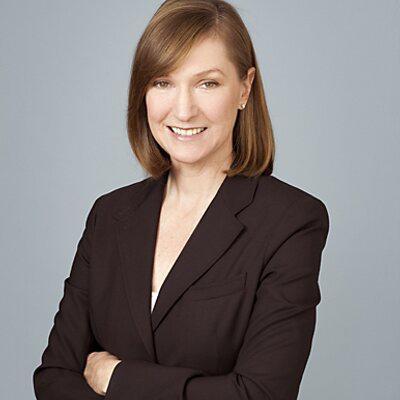
Eva Dillon spent twenty-five years in the magazine publishing business, including stints at Vogue, Harper’s Bazaar, Glamour, The New Yorker, and as president of Reader’s Digest.
Dillon and her six siblings grew up moving around the world for her father’s CIA assignments from Berlin to Mexico City to Rome to New Delhi.
A transplanted New Yorker now living in Charleston, she holds a bachelor’s in Music from Virginia Commonwealth University.
Interview with Eva Dillon
Tell us about your CIA father…
Growing up, I always thought that my father’s job at the State Department explained our peripatetic lifestyle as we moved from continent to continent. Then, when I was seventeen in New Delhi, India, his diplomatic cover was blown, exposing his real career with the CIA to me and my six siblings. However, it would be decades before the extent of his clandestine activities became clear to us.
What we ultimately discovered: his role as a handler for the CIA’s most valuable Soviet double agent during the darkest moments of the Cold War.
Code-named TOPHAT, Dmitri Fedorovich Polyakov was a World War II hero turned military intelligence officer who volunteered his services to the United States when he was under cover at the UN in 1961. A principled man motivated by his love of his country, he wanted neither money nor asylum. Instead, by alerting the US government to its deficiencies in the arms race via a wealth of classified material, he sought to prevent a superpower face-off, helping to keep the Cold War from becoming hot. My father and Polyakov developed a close friendship over the years that transcended the ideological divide and endured until their respective tragic final days.
When I discovered the relationship my father had with the Cold War’s highest-ranking, longest-serving Soviet asset, I wanted, primarily, to honor General Polyakov and his service. But the more tactical and emotionally motivating factor for me was when I learned that Polyakov’s son had immigrated to the United States and was willing to share his memories with me.
Exclusively gaining access to his stories of his father and account of growing up unknowingly as a family of a spy, and comparing that experience with my own, inspired me to tell an incredible and fascinating Cold War story, but through the intimate and personal lens of the two families.
Q: What inspired you to write this memoir?
I was inspired to write the book because of a magazine article we discovered in my mother’s belongings after she died in 1997. It featured an article called “Our Man In Moscow” (George Magazine, October 1997) about Dmitri Polyakov and my father. And that, in those pre-internet days before news found you rather than you finding it, is when I discovered the magnitude of my father’s secret career and was inspired to research both him and General Polyakov.
Most books like this one, are written by journalists who wait for newly declassified information. Polyakov’s case remains classified, and probably will for many years. I came at it quite differently, relying on interviews with 18 of my father’s former CIA colleagues and with the General’s son. But I didn’t want to write the book that a journalist would, and should, write some day. I wanted to write the book by a daughter, exposing the human interest side of this Cold War spy story.
Q: What was the hardest part of writing this book?
Finding the intelligence officers (CIA and FBI) officers who knew my father or were familiar with the Polyakov case to interview them. It’s their nature to be under the radar.
Q: What did you enjoy most about writing this book?
Interviewing the CIA and FBI officers. Each one was more interesting than the next.
Q: Give us an interesting fun fact about a character in your book.
Russian/Soviet pilot Viktor Belenko defected from Siberia to Japan in his super-secret MiG-25 Foxbat jet in September of 1976. His defection and the West’s access to the super secret jet’s technology made worldwide news.
When he requested asylum to the United States, my father became his handler. He hung around our suburban Wash DC home a lot, and I developed a little crush on him. He ignored me, and instead started flirting with my older sister. Dad put a quick stop to that.
Q: Are you a full-time or part-time writer?
My career was in magazine publishing, on the business side (advertising, marketing, management, etc.).
When I wrote this book, I did so full time for 5 years. Now that it has launched, and I am retired from magazines, I play tennis 5 days a week (so, in other words, I’m not a full-time or part-time writer anymore.)
Q: How many books have you written so far?
Spies In The Family is my one and only. I had one great story to tell, and I told it.
Q: What was your process of writing this book?
Writing a non-fiction story, I found myself overwhelmed with all the information I’d collected from interviews, magazines, books, reports, documentaries, etc…. So, I started a list of every interesting fact I might use in the book, in chronological order, along with its source. Eventually, it was 200+ pages of typed, chronological facts/stories. This became the outline of my book, from which I deleted or added facts or stories as I went along, as I molded, shaped and wrote the narrative.
Q: Where do you sell your books?
Everywhere books are sold.
Q: Do You Have and Agent/Publisher or Do You Self-Publish?
I have an agent and a publisher.
Q: How is your experience working with an agent/publisher?
My agent is Laura Yorke of the Carol Mann Agency. My publisher is HarperCollins.
I was lucky that an editor I’d worked with in the magazine business introduced me to her agent, Laura. After spending two months writing a strong proposal, Laura got me in to see 7 publishers. We selected HarperCollins.
The best advice I can give is to write a very strong proposal. Editors are swamped with proposals, and yours must stand out and make it easy for the editor to understand, from first glance, why your book merits consideration:
- A compelling introduction to the book, its premise, and its point of difference (why this book? why now?)
- A marketing section (prospective target audience, competitive marketplace)
- A publicity section (how the book should be publicized)
- A synopsis of the book
- A summary of each chapter
Having the professional help of a publisher was wonderful (editing, copy editing, design, etc…). Harper edited and shaped my manuscript into a better book. If you don’t have a publisher, solicit help from professionals or trusted/talented friends. One of my best editors was my brother.
Q: Have you been published in any magazines?
Interviews or excerpts of my book have been published in Vice, The Daily Beast, The American Scholar, Charleston Magazine, The Grapevine, The New York Post, The Wall Street Journal (selected as a June Book of the Month), The Knoxville News Sentinel, Kirkus Reviews and the Library Journal Review.
Kirkus Reviews awarded Spies In The Family a Kirkus Star. Stars are given to only 10% of the prestigious review site’s books.
Q: What do you like to do when you’re not writing?
Tennis!
Q: If you were deserted on an island, which three people would you want to have with you and why?
Malala Yousafzai, because she’s got more courage than the rest of us put together. Fareed Zakaria, because I appreciate his measured, practical outlook on the world. Roger Federer, because I’m in love with him. (My husband completely understands.)
Thank You, Eva Dillon, for taking part in our interview!
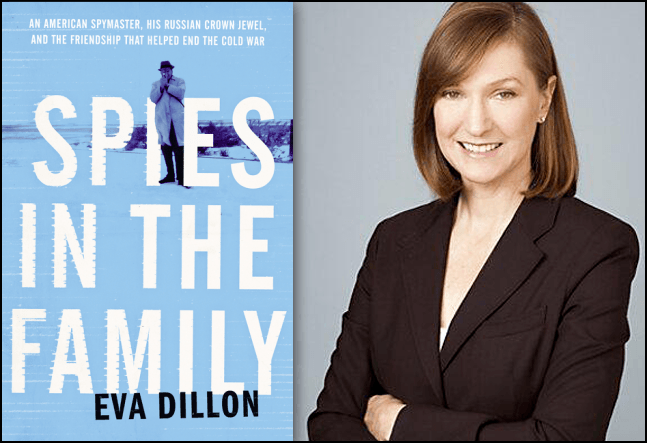

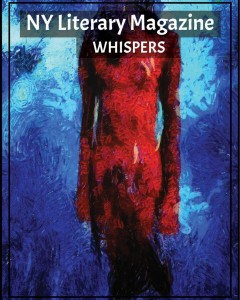
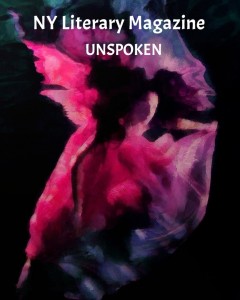
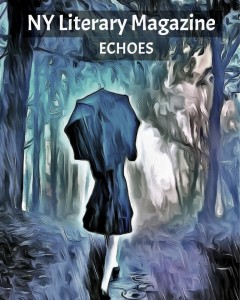
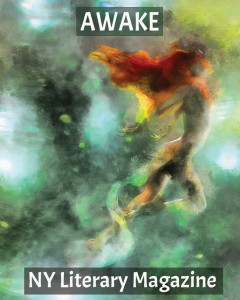
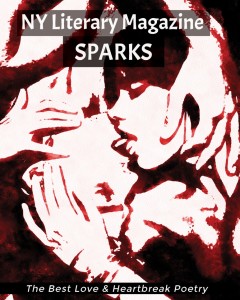
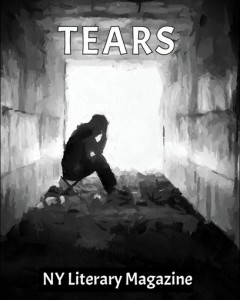
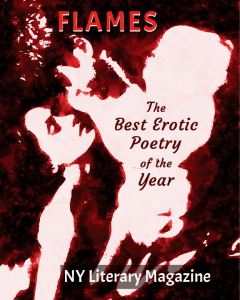


Leave a Reply
You must be logged in to post a comment.